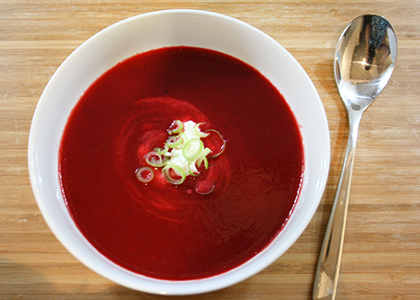In the current round (lately we don’t have wars, “just” rounds like in boxing matches), the central area of Israel where I live was targeted several times by Hamas missiles. So why do I feel lucky? Because areas closer to the border with Gaza are pummeled by Hamas rockets for years, whereas the central area is targeted much less. Also, Southern residents have only 15 seconds to run to a shelter after the air raid alarm goes off, whereas we have 45, which makes a big difference. Literally, life and death. Our apartment has a safe room made of concrete, with an iron window and steel door to protect us, but older buildings have either a common underground shelter (which you need to reach in seconds!) or just a staircase or inner room that can be used as a shelter. Plus, Israel’s miraculous Iron Dome system intercepts rockets and destroys them in mid-air with a 90% accuracy. But all these facts are pretty much known by now by my family and friends abroad.
I will now try to describe how it feels to live through
these rounds from my own perspective. First of all, work goes on as usual.
Through all the recent wars and rounds, Israel has continued to supply products
to customers abroad. Production must go on and deadlines must be met. Employees
of essential facilities go to work, or work from home (thanks to Covid, this is
now much easier than before). Most facilities have shelters. When the air raid
alarm goes off, employees take shelter, wait 10 minutes for the last piece of shrapnel
and debris to fall and then continue working, if not directly hit. Kind of
reminds you of the London Blitz, right?
The sound of the air raid alarm is a weeping-blood
rushing-frightening one. During a round, my ears are constantly and actively listening
to background noises. Sounds such as an accelerating car or motorcycle are
always suspicious, not to mention police, ambulance or fire truck sirens, which
can be confusing for the first second until my mind categorizes them as unharmful.
In the background, we hear distant missiles as far as Ashdod, which is about
half an hour drive to the South. In the secure room, we clearly hear the
falling missiles, as well as the screeching sound of the anti-missiles being
launched. Lately, I also observed my body language in the secure room: I sit hunched
up with my head down, as if waiting for a missile to fall on my head.
If you are in the car during the alarm, you should stop the
car, get out and run to a nearby shelter. If there is no shelter nearby, lay on
the ground with your hands protecting your head. Same goes for buses. It
happened to most of us, myself included, when I walked in a park. Not fun, but
at least I could watch the missiles “kissing”.
Since the alarm can go off at any time of day or night, I
take short showers, don’t take unnecessary trips, and I’m always mindful of essential
items (like my mobile phone) to take with me to the safe room. Last time, I was
in the middle of lunch, so I took a bowl of cabbage salad with me, although I’m
pretty sure it wasn’t essential J.
In the safe room, we check our phones to find out where the rockets hit and
make sure all family members are safe. After waking up, we also check the news
apps to keep up to date with developments we might have missed while sleeping.
I have a recurring video looping in my head about opening
the safe room door and not being able to step out, because there is nothing to
step on, the entire apartment being blown up by a missile. Could you imagine
losing your home? Hard, isn’t it? Yet it did happen to some Israelis and I
could be next. Even though I insisted on adding an anti-missile coverage to our
home insurance (yes, there is such a thing) years ago, and the authorities are
quite efficient with assessing the damage and providing you a place to sleep, it
could take months till your home is repaired or rebuilt and you have no
belongings. Again, not fun.
On top of the above “not fun”, this round brought us a new
development, potentially even more worrisome than the round itself. In mixed
cities (where Arabs and Jews live together), you can be attacked or your
business or home or car set on fire or vandalized by a mob (usually young, unemployed
or low social-economic situation extremists) just because you are a Jew or an
Arab. Or your car can be hit by a deadly rock while on the road. Police claim they
help only in life-threatening situations, not vandalism (which makes me and everybody
else very angry). As none of the parties is going anywhere and we will have to
live together after the round is over, I am not sure how this will work out.
Some people claim we should destroy Gaza completely, revoke
the citizenship of the rioters and exile them. Well, about the destruction, you
need to know that Israel has the military power to complete this in about 12
hours, but we act as a civilized country (as opposed to a terrorist
organization), with all the ramifications, so I wouldn’t hold my breath. Same
goes for revoking citizenship (ramifications, remember?). Rioters will probably
be prosecuted and jailed.
And there are also the normal, compassionate human beings (whatever
their religion) who help and comfort the other side no matter what and now more
than ever, but of course they don’t always make it to the headlines, unless
they march together and give out flowers to passersby (this happened a couple
of days ago). So there is hope. Maybe.
Friends invited us to stay over at their place in the North,
but for the time being the situation is bearable. Not even the southerners left
their homes, so we really cannot complain. Not like in the old communist joke,
at least.
So when is this round going to end, I was asked. Although
our prime minister announced right at the beginning that this round will take a
long time, Israelis are a pretty impatient bunch. Wars longer than 6 days J morph into a boring routine
and we are already anxious to move on the next news item. By now, I think both
parties are ready to stop, but being in the Middle East, they are waiting for
the other party to blink first and then announce their own victory.













